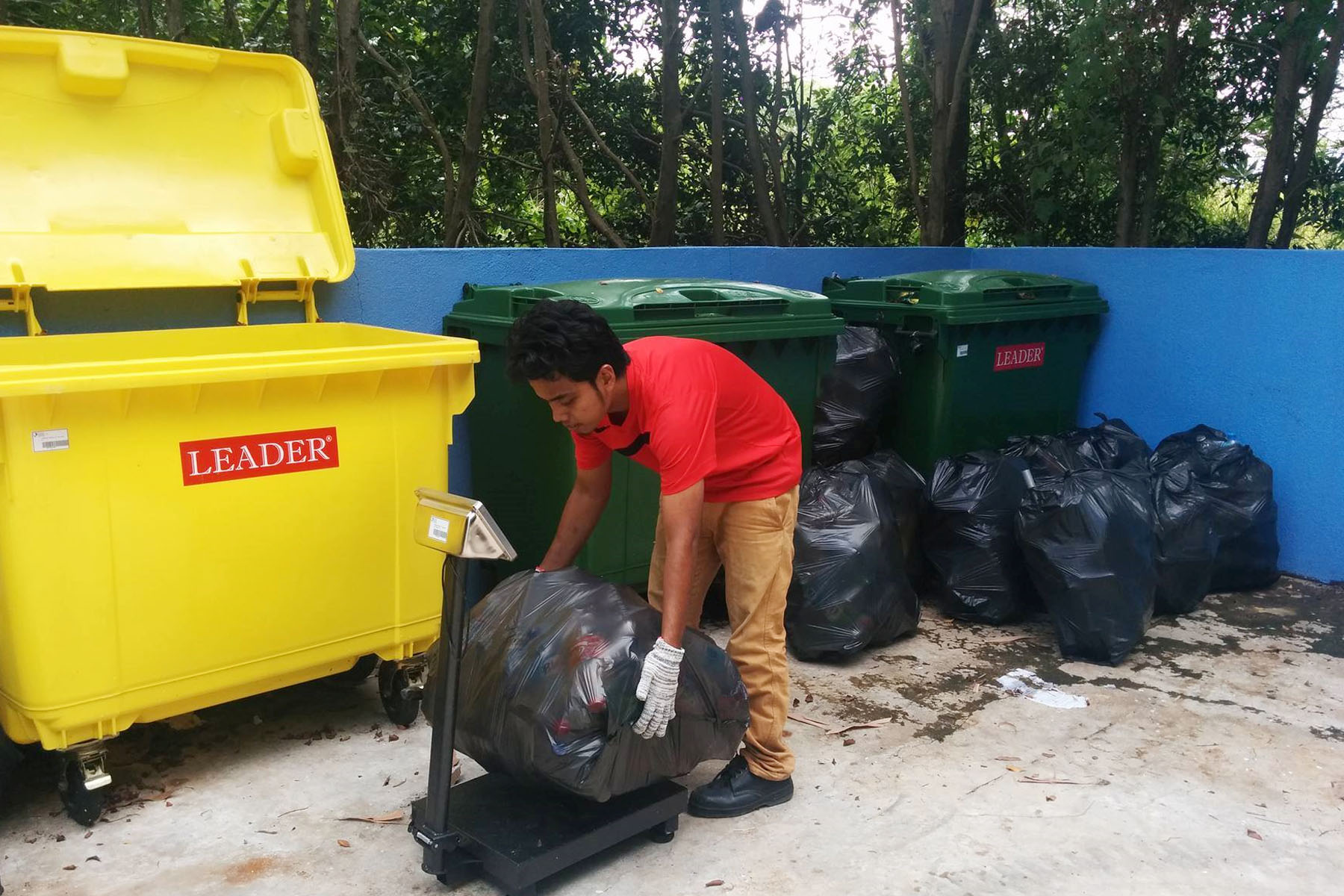Waste

UMP believes that sustainable waste management is an important factor in ensuring the preservation of the earth that we inhabit. Thus, UMP proactively take initiatives to ensure that generation of waste in UMP is managed sustainably through 3R principles (Reduce, Reuse and Recycle). Since its inception, UMP had adopted a policy to reduce usage of paper in its operation, and office documentation system called "E-Community". Apart from reducing the usage of paper, E-community also shortens response time for every task. E-meetings had also been introduced since 2012 in the university Senate Meetings trickling down to departmental and faculties meetings.
To further increase awareness on the importance of reducing plastic waste, starting from 1st November 2016, UMP has already implemented "Polystyrene Free Campus" policy for food and beverage containers. This policy results in a significant reduction of plastics consumption and waste in the campus.
To encourage more effective recycling practice among UMP's community, 54 Recycling Drop Points as well as Recycling and Composting Centres were established in 2016. By establishing these points and centres, collection of recyclable materials significantly increased to 17.92 tonnes in 2016 compared to 0.75 tonnes in 2015. At national level this contributes to 56,662kWh energy saving for production of new product from recycled material, and 41,360kg of CO2 emissions reduction.
To ensure that sewage generated in UMP does not have any adverse impact on the environment, nine sewage treatment plant have been constructed to ensure that the sewage is fully treated to meet the standards set by the Department of Environment, Malaysia. The university also explores on the potential of sewage effluent for irrigation of landscape plants.
Systematic management of chemicals and scheduled wastes that meet the standards set by Department of Occupational Safety and Health (DOSH) and Department of Environment (DOE) was fully implemented by UMP whereby chemical and biological wastes generated from teaching, learning and research activities are managed and disposed in a safe and sustainable manner.

